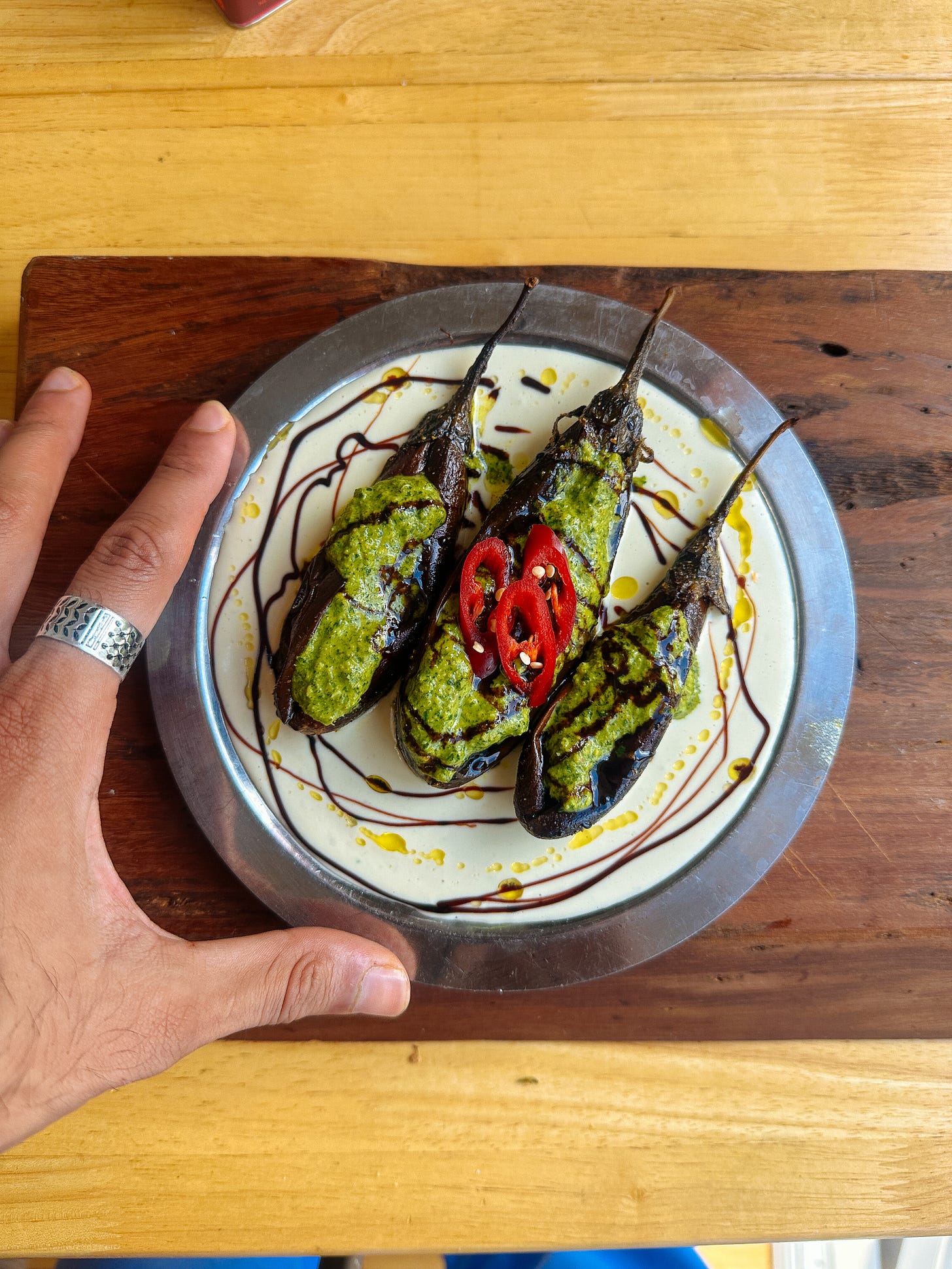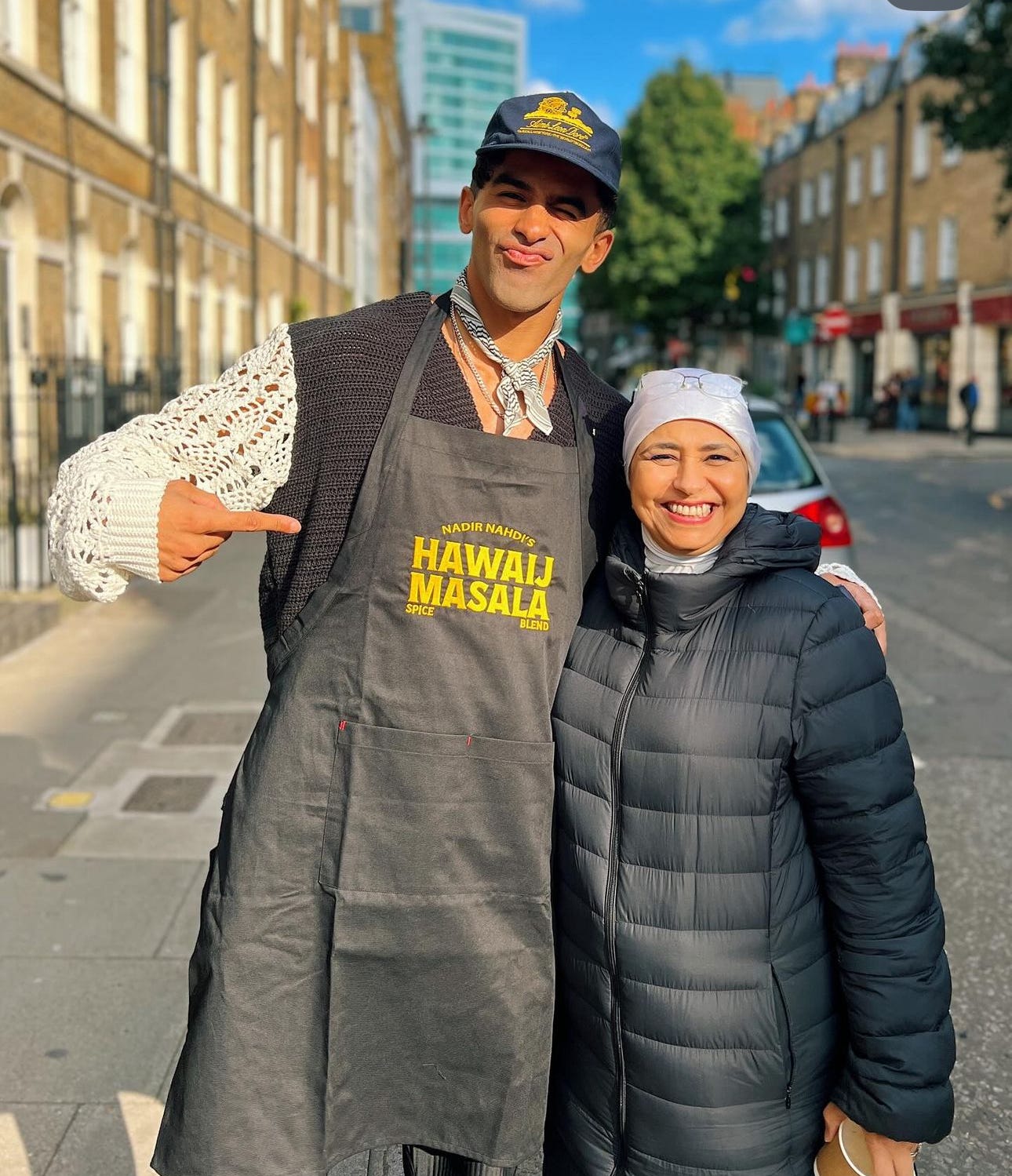No big deal but.. I collaborated with probably the best spice company in the world. Here’s what I learnt:
Spice Identity
I love stories and experimenting with different ways of telling them. Creating a mix was not only about providing premium and equitable spices, it was about reclaiming a pre-colonial identity where communities across the Indian ocean shared culture.
In trading spices it was the first time in human history cultures cross-polinated. Before the Europeans came and disrupted the trade this exchange was mutually beneficial and harmonious. Indonesians had clove and exchanged it to the Yemenis for frankincense. Soon their identities became entwined. Codependent. It wasn’t just spices they shared it became culture, cuisine and even religion too.
Over time a Yemeni Arab had more in common with an Indian, than they did with an Iraqi Arab. That’s because culture moved more freely across bodies of water than they did over land.
Its why I always tell people “I am a child of the Indian Ocean”, because any country I visit across this region I feel an immediate sense of cultural familiarity. Especially in the spices they use, albeit just in different variations. I can still taste the earthiness in nutmeg and the sweetness in the cinnamon.
This story in the context of a divided and hostile world is incredibly powerful. Really it challenges everything we believe about identity. Yemeni? Indian? What do these structures even mean? Hawaij is a spice mix born outside of such limitations. I love that idea.
Spices speak more to our identity than the human constructs we have adopted from imperial colonialists.
If by buying and using this spice people become more aware of this history and interconnectedness we share could it help forge more empathetic communities?
Does fair trade production have a price?
What’s become clear to me is that we don’t place a lot of value on our culture. Perhaps taking it for granted. Hawaij, spices in general, is something we in the diaspora are used to having access to easily and cheaply. We been getting comments like this:
The whole collaboration with Diaspora Co was so enticing to me because of their focus on equitable spice production, paying their farmers 4x higher than the market and employing regenerative farming practises that don’t destroy the land.
Are we really serious about challenging the colonial corporate spice machine that crippled the global south for centuries? Yes its more expensive, but you’re not only buying spice you’re preserving the dignity of our people. Or are we happy to replicating the consumer behaviours that have exploited our countries of heritage?
Genuine question, I am wondering this myself. Just how much is this dignity to people and land worth to us? How much are you willing to buy your spices for?
Hawaij and Zionism
A large reason I also wanted to do hawaij is to reclaim its association with Israel. Hawaij, just like hummus, has been coopted to form Israel’s national cuisine.
Yet Zionism tends to have a habit to claim things that are not their own. Hawaij is a culturally Yemeni spice blend born out of centuries of trade with south and south east asia. Even if Yemenite jews took hawaij with them to Israel, Jewish Yemeni cuisine is YEMENI cuisine. Hawaij has existed way before Israel ever existed, yet the PR machine has done a great job in associating it with Israel.
In claiming it as Israeli, it does precisely what they have wanted for decades. Negate a multi-religious cosmopolitan Arabia where Jews were very much integral and integrated. In the context of Zionist occupation and imperialism, we cannot let them also erase or sweep away our culture.
Israeli cuisine has done an incredible job in translating their cuisine to an eclectic and modern world. Whilst our cuisine stays confined to community restaurants, ‘hole in the walls’ and homes, they have loudly claimed it in several michelin restaurants and culinary capitals around the world. Deepening mainstream culture’s association with it.
We need to do better. Package the beauty of our culture to allow others to appreciate it, engage with it but also emotionally invest in its preservation.
You can’t expect people to love your culture, you have to give them a reason to.
There is virtually zero reference, vernacular or familiarity around Yemeni culture. Which is why people don’t care if it is subject to violence or misinformation. Yemeni culture never been “sexy”, which is why so few engage with it.
It became clear very early that releasing the spice mix wasn’t enough, people didn’t even know what to do with it! We would also have to educate people how to use it.
The lesson here is that cultivating empathy for a people requires you to make it as easy as possible for others to do so. You can’t just show them the door, you have to walk them through it. We crafted traditional and modern recipes to make it easy for people to use. My ‘Fahsa Pot Pie’ was an attempt to recreate a classic British pie with a Yemeni stew. A delicious way to draw relatable bridge between two cultures. I’ve taken traditional classics like ‘Haneeth’ and make them easier to make without compromising taste. And my ‘Roasted Aubergine with Tahini and Date Syrup’ is a bright and outrageously good creative way to use the spice.
Once they become comfortable and attached to the incredible flavour and dishes, perhaps they’ll be more open and concerned about the people too?
This has been such a wonderful partnership for me and I couldn’t have asked for more patient and supportive collaborators as Diaspora Co. It is such a luxury in my line of work to work with companies that align with your values especially after this year!
Diaspora Co seeks to build a better spice trade equitably and deliciously. Repairing a legacy of colonialism and corporate malpractice. They pay their farming communities way above market rates. Their farms are all regenerative and protect the land. This ethos of placing value on people, land and quality of product made it such an honour to be part of.
If you’re in the US you can purchase the spice directly from their website here. If you’re in the UK you can purchase the spice from the Natoora website here.










Excellent! You are forging a new anti colonial path and confronting cultural appropriation!! We are with you!
thanks for introducing me to it!